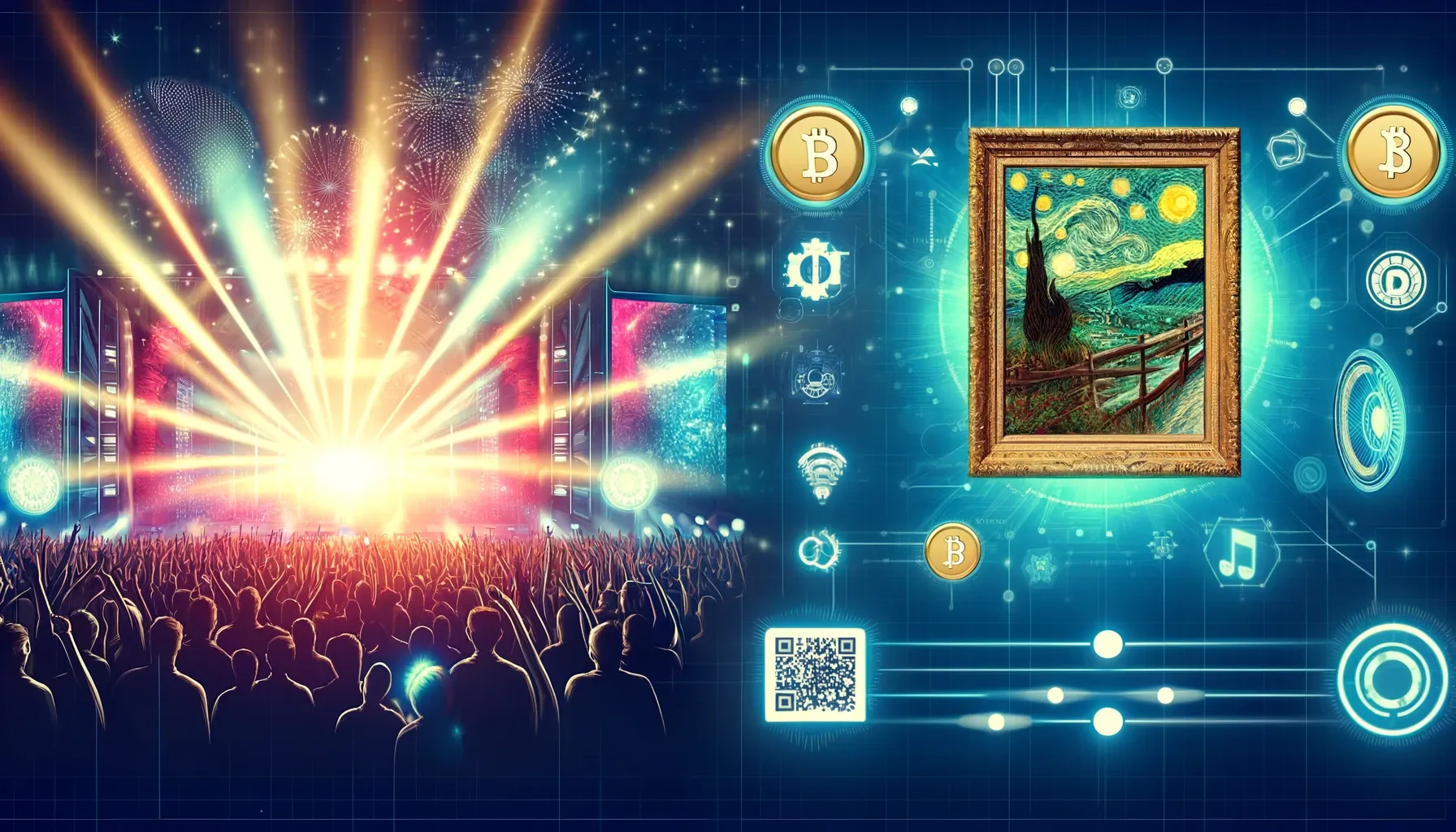
Event ticketing enters a new era with the use of real-world assets and NFT innovation
Real-World Assets (RWAs) are physical or intangible assets that are represented digitally on the blockchain but have a physical existence. By integrating Non-Fungible Tokens (NFTs), this creative idea is revolutionizing a number of industries, including event ticketing. An example of how digital blockchain technology is being used to improve conventional real-world asset markets by offering efficiency, security, and verifiability is NFT ticketing.
An appreciation of NFT ticketing as a practical tool
NFT tickets are virtual tokens that stand in for ownership and entry privileges to actual events, like conferences, sporting events, and concerts. As RWAs, they create a physical connection to a physical experience that is safe on a blockchain, bridging the gap between the real and virtual worlds. Through special advantages connected to the NFTs, this guarantees authenticity, lowers fraud, and improves user engagement.
NFT tickets' characteristics as RWAs
NFT tickets demonstrate their function as successful RWAs by fusing the tangible benefits of in-person event access with the digital advantages of blockchain. These are the distinguishing qualities that emphasize their worth.
- Concrete relationship. NFT tickets are tangible assets since they provide the holder with a genuine, authentic entry to an event.
- Digital Ownership. A blockchain records ownership information and creates an unchangeable, transparent ownership trail.
- Increased liquidity. Like other tokenized assets, NFT tickets are easily purchased, sold, and traded on digital platforms.
- Inherent value. Similar to traditional ticketing but enhanced by digital technology, NFT tickets are valuable because they grant access to live events.
NFT Ticketing: Investment and Strategic Benefits
Due to NFTs' growing acceptance and popularity in mainstream applications, investing in NFT ticketing platforms or assets presents special growth and return opportunities.
- Market Growth. The NFT market is expanding quickly, and NFT ticketing has established a sizable market niche in the live event industry.
- Sources of income. In addition to the primary sales, event planners can profit from ongoing transactions by receiving royalties from secondary market sales.
- lower expenses. Digital ticketing lowers the printing and distribution expenses and other logistical costs related to physical tickets.
- Complying with regulations. Because NFT tickets are digital assets, they have to abide by changing blockchain rules, which support the preservation of an open and lawful marketplace.
Case studies of real-world implementation
A number of case studies show how NFT ticketing is already improving the event experience and creating new avenues for engagement and revenue to demonstrate the technology's useful applications.
- Tickets to the festival. NFTs are now available as tickets and collectibles at major music festivals, giving fans access to the event as well as a keepsake.
- Athletic events. In order to provide fans with exclusive content connected to their digital ticket, some sports leagues are investigating using NFT tickets to handle season passes and special game access.
Example Long-Term Investor Calculation
Think about a situation where a group of investors chooses to fund an NFT ticketing platform that caters to major music festivals. Let's figure out the possible financial gains over the long run.
- First-time investment. $500,000 will be invested in the platform to create and implement NFT ticketing systems.
- Yearly income from ticket sales. Assume that the platform oversees events where 50,000 tickets are sold each year at an average cost of $200.
- Secondary sales royalty. 10% of tickets are resold, with an average increase of 30%, and there is a 5% royalty on secondary sales.
Calculations
- 50,000 tickets x $200 = $10,000,000. This is the annual primary sales revenue.
- Five thousand resold tickets times $260 (30 percent increase) equals $1,300,000 in additional revenue from secondary sales.
- Royalty revenue is equal to 5% of $1,300,000, or $65,000.
- Royalties plus primary revenue equals $10,065,000 annually.
Without taking into consideration increases in ticket prices or diversification into other event categories, the return on investment (ROI) could be significant over a few years, assuming a steady market and growing demand for NFT tickets.
In conclusion
One innovative instance of how blockchain technology is transforming the idea of physical assets is NFT ticketing. NFT tickets improve the value and experience of live events by fusing the dependability and tangible nature of traditional assets with the adaptability and effectiveness of digital technology. This signals a new era in asset management and investment opportunities for investors and industry stakeholders by presenting a compelling intersection of entertainment, technology, and finance. NFT ticketing is poised to revolutionize event access as the market develops further, transforming each ticket into a valuable, exchangeable asset.